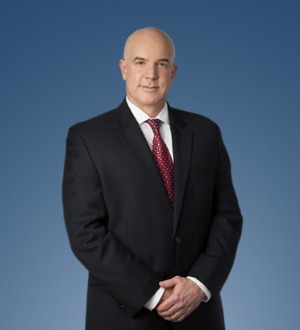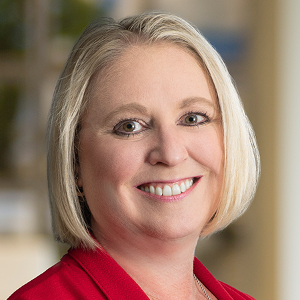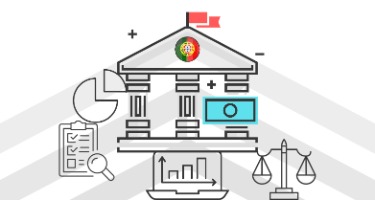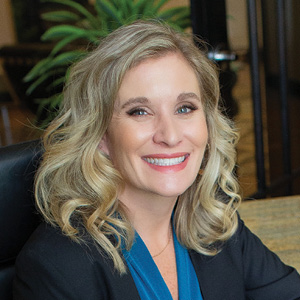Few areas of global politics and economics are as fraught as energy—and one major player in markets worldwide is the multinational law firm White & Case, recently named “Law Firm of the Year” for Arbitration and Mediation in France. Paris-based firm partner Michael Polkinghorne heads the office’s arbitration group and jointly leads its oil-and-gas practice; he sat down with Best Lawyers CEO Phillip Greer to discuss modern dispute resolution, the virtues of mediation, and the intellectual thrill provided by liquefied natural gas.
The common thought is that jury trials are unpredictable, and therefore arbitration and mediation tend to be the favored routes for dispute resolution. Have you found that clients agree?
Michael Polkinghorne: Yeah. I’d qualify this in one aspect: Most of the work we do is very large commercial disputes, and jury trials in commercial disputes are almost unheard of. Therefore, the distinction I’d draw is between going to court or going to arbitration but a court in the broader sense and not just with a jury. If you go outside the U.S., for example, it tends to be criminal or defamation and not the type of cut-and-thrust case where someone says “You’ve expropriated my company” or “You owe me X dollars for the oil you’re selling me” or “You’ve breached this joint-venture agreement.” The choice that clients face in drafting these contracts is more about, do I want to go to a national court or do I want to go to arbitration? It’s often that arbitration is seen as the lesser of two evils.
The usual reason people go to arbitration is they don’t want to be in the other guy’s local court. If I’m doing a deal with someone in the United States, and I’m French, I don’t want to find myself in a U.S. court, and a U.S. party doesn’t want to find itself in a French court. So arbitration tends to be the compromise: You can tailor the proceedings to a certain extent.
One problem with national courts is you don’t know who will be determining your case. It may be someone who last week was in the family court and now is dealing with this huge multimillion-dollar commercial dispute, and maybe that’s not their comfort zone. So arbitration is seen as more predictable than a national court.
Mediation is a slightly different ballgame because you can take it or leave it, right? It’s not something where a solution is imposed upon you. So that’s attractive to people regardless of whether they’re going to end up in arbitration or before a national court, simply because it’s a means of dispute avoidance as much as anything. It’s like, can we deal with this like grownups or are we going to end up in court or arbitration?
Regarding the advantages of arbitration and mediation: Are there any risks you’d mention when taking that route for your clients?
The huge risk is that the other party isn’t interested. I’ve been involved with a reasonable number of mediations. Often clients don’t think they need external counsel because mediation is seen as a commercial means of settling a dispute. And so we tend to be less involved with mediation. It works only if both sides really want to settle. In one case, I had the rug pulled out from underneath me because my client ultimately wasn’t interested.
In terms of arbitration versus litigation, I think a point that would arise more in civil jurisdictions than in common law jurisdictions such as the U.S. and U.K. is the question of cost. I think you can still say that arbitration scrubs up reasonably well in terms of cost compared to U.S.-based litigation, where you’ve got discovery and costs can get really big really fast. In continental Europe, litigation can be cheaper and faster. The [International Criminal Court], for example, is now enacting a number of guidelines trying to speed up the process.
Which industries see the most resolution through arbitration mediation?
My practice is 90 percent energy-driven, so I’ll be looking at this in a somewhat myopic fashion. Energy disputes are almost by definition international. They often involve complex long-term contracts, and there’s often a feeling in the energy industry that we want someone who speaks our language, we want counsel who understands the oil and gas business. There’s a greater hope that we’ll have a rational result. I think that would apply equally to telecoms and [intellectual property] to a degree.
What developments in oil and natural gas over the last decade or so have required arbitration?
It will be different for different corners of the world, but in Europe and now in Asia, we’re seeing an explosion in arbitration arising out of long-term contracts for the supply of natural gas, whether piped gas or liquefied natural gas. I’ll start with Europe. These were dealt with in a very club-like way. There were just a few suppliers—Gazprom, GasTerra, the Algerians. And then a few buyers—the incumbents, Gaz de France, Eni in Italy, Ruhrgas in Germany. They all had a predictable arrangement that they’d be able to agree to a price because, at the end of the day, you were trying to sell gas against competing fuels, so everyone was on the same page as to the end result, which was getting a price that would allow you to compete.
That changed from about 2008 onward, where suddenly it was gas-to-gas competition. There was deregulation, there was the possibility of LNG coming from elsewhere. Shale gas was starting to become a real thing in the U.S. The whole market had changed, and the old rules no longer applied. People were struggling to find out what the new ones were, and in that type of vacuum, negotiations often weren’t leading to the results people had hitherto expected. Many of these contracts provide that in the event that the parties can’t agree, you go to arbitration. As a result, there was an explosion in the number of disputes that did that.
Part of that is what we call “resource nationalism.” Countries that traditionally had opened their doors to foreign operators, international oil companies and the like, have been reclaiming, they would say, sovereignty over their own national resources. That had been seen years before, but there was this period in the ’90s with low oil prices where international oil companies were back in the loop. I think that’s probably changed a bit. So that’s another area where we’ve seen more arbitration than before.
Are there any upcoming projects or other work you’re particularly excited about?
From an intellectual perspective, liquefied natural gas is super interesting. It’s the area of oil and gas that’s the closest thing we have to rocket science, right? It’s this whole notion of getting gas and then cooling it down to hundreds of degrees below zero and stocking it in ships, taking it across the planet, and unloading it into a re-gasification terminal. It’s a really interesting area, technically, and I think the contracts tend to reflect that.
I’m co-head of our firm’s oil-and-gas practice, so I’m looking at that over and beyond pure arbitration, and intellectually it’s an interesting area. You can see how sad my life is if that’s the only thing I’m particularly excited about. But there you go.
This interview has been edited for length and clarity.
Find trusted legal counsel with the Best Lawyers Find a Lawyer tool and get the support you need.










































